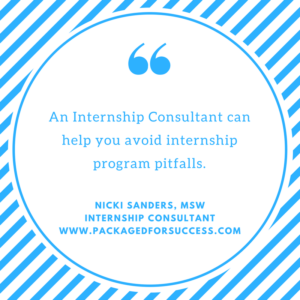How to create and manage a successful internship program (Part 2)
By Nicole Cendrowski, director of engagement, A-LINE Interactive
While the nature of an internship may require independent work, it’s important to provide guidance and feedback during projects, especially in the event of hiccups, mistakes, and challenges.
Last week, I shared some guidance from Endeavor, a Greenville-based creative services coworking community, on how to lay a strong foundation for a summer marketing internship program. In this concluding article, I’ll share advice on how to effectively manage a summer internship program.
Be the student and the teacher
While the nature of an internship may require independent work, it’s important to provide guidance and feedback during projects, especially in the event of hiccups, mistakes, and challenges.
Endeavor’s intern, Lindsay Odom, appreciated immediate feedback while working through the writing process. She was responsible for research and interviews and writing, designing, and sharing content for the company’s various digital marketing platforms. Endeavor’s managing partner, Shannon Wilbanks, is her mentor and manager.
“Shannon was very patient and helped me through the revision process with my blog posts. I actually had to unlearn some things I’d learned in school. There wasn’t necessarily a formula or a cookie-cutter approach to the content I was creating. I learned to embrace listening, intuition, and strategic thinking,” Odom recalls.
She was also surprised how people were willing to spend time with her. “People invested in the process with me. While I was learning new things, they wanted to learn, too.” she says. “It would have been easy for me to assume that seasoned advertising executives don’t want a 22-year-old explaining the business case for Instagram, however, everyone was open to new ideas and technology.”
Be pragmatic
Odom’s internship experience is a healthy example of a win-win experience, bringing value to both the organization and the intern.
Not every internship at mid-summer’s point fares so well. If you realize you and your intern aren’t the match you’d anticipated, there are pragmatic approaches to improving the situation.
“If you think the intern is miserable, I think it’s fair to offer them the ability to leave early. Without pay, of course,” Wilbanks admits. “But it may be that everyone just needs to recognize the situation and move on.” If they’re not miserable, but simply aren’t living up to expectations, or maybe, you’re not living up to theirs, here are a few next steps to remedy the situation.
First, understand what’s really wrong. Does your intern need more structure or more freedom? Do they need more time with members of the full-time team? Do they have the skills you’d expected them to and if not, can you teach them anything while they are with you?
“I’d look at it almost the same way I would an issue with a permanent employee,” explains Wilbanks. “You’ve invested in this person, so what can you do to help them succeed? If that means we need to adjust our own expectations so the intern does have a positive experience, even if it’s not what we originally intended, then it’s worth it. Especially if we’re able to learn from it and do better.”
Be prepared for next year
Moving forward, it’s critical to take note of lessons learned during your internship program while they’re still fresh in your mind. Then, be sure to apply them to next year’s program. It may be helpful to get clearer about the position or more capable in the interview process.
Article originally appeared on Upstate Business Journal.
